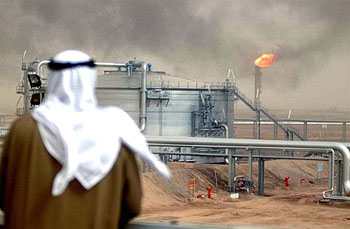 Jeff Currie of Goldman Sachs is pessimistic about world oil supplies. Ambrose Evans-Pritchard of the Telegraph reports:
Jeff Currie of Goldman Sachs is pessimistic about world oil supplies. Ambrose Evans-Pritchard of the Telegraph reports:
Assumptions that OPEC has added 1.9m bpd over the last two years are wishful thinking. These new fields have been “largely offset” by attrition in old fields.
“We believe that OPEC spare capacity has already dropped below 2m bpd. The question therefore arises how much spare capacity is left to absorb potential supply disruptions in other countries,” he said. If this picture is broadly correct, spare capacity is already close to the wafer-thin levels that led to wild price moves in mid-2008.
….Chris Skrebowski, editor of Petroleum Review, said the long-denied oil crunch is starting to bite. “We cling to the comfort blanket that spare capacity exists, but it is mostly fictional, or inoperable. If you take 2m bpd off the figure, the whole dynamic of global oil supply changes,” he said.
World oil prices are largely driven by spare capacity these days. When it gets down to around a million barrels a day, where it seems to be now, prices can gyrate wildly based on very small supply shocks. Libya isn’t a huge supplier of oil on the global market, but the loss of their production probably removes whatever small cushion we’ve been operating with. Even a very modest disruption in another OPEC country could send oil prices skyrocketing.
Then again, maybe not. Maybe demand in China will slow down a bit as authorities there try to cool down their economy slightly. You never know. But spare capacity is key, and right now there’s hardly any left. For more, see here, here, and here.










